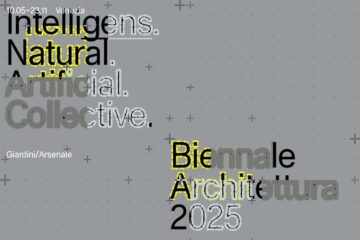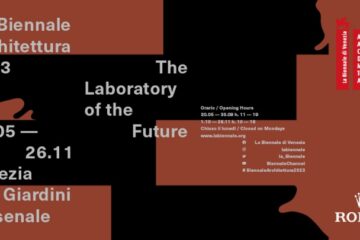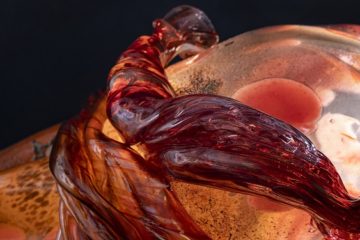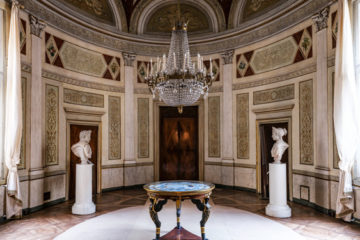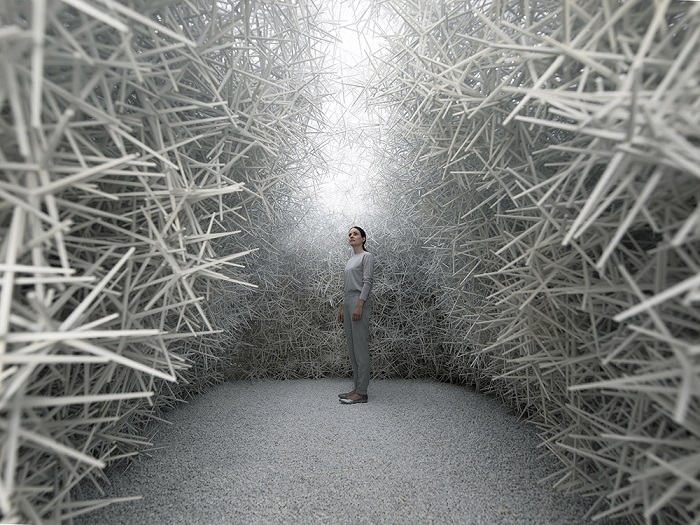
The ICD Aggregate Pavilion 2018 presents the latest results of 10 years of research into designed granular materials for architecture. It constitutes the first fully enclosed architectural space entirely constructed from designed granules, which lie only in loose frictional contact.
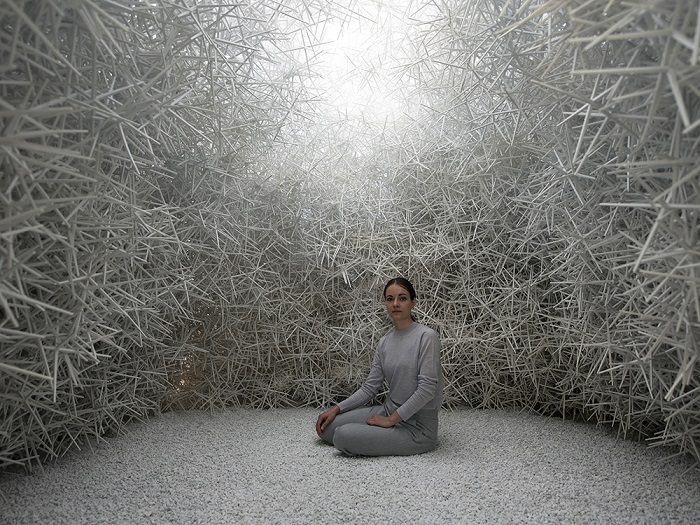
Such unbound granular materials show the unique property to obtain both the stable character of a solid material and the rapid reconfigurability of a fluid. If custom-designed particles are deployed, granular materials can form self-supporting spatial enclosures while remaining fully reconfigurable and reusable.
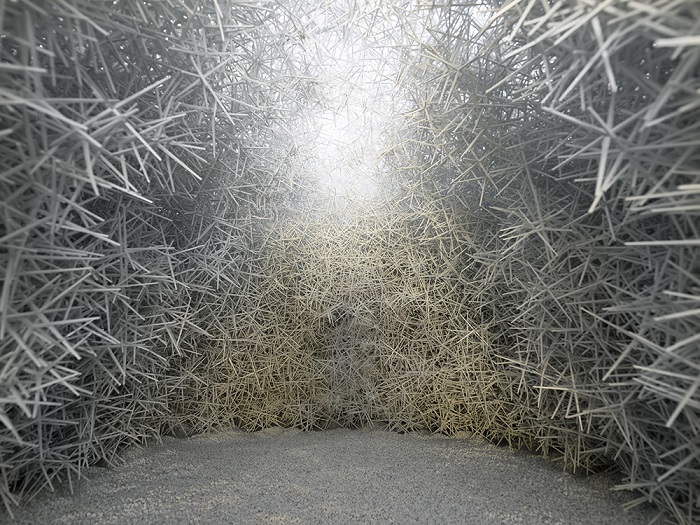
70.000 star-like, white particles are made from recycled plastics. They are poured by a rapidly deployable, large scale robot system. The pavilion demonstrates how designed granular materials open up a new perspective for a design paradigm of productive forms of de- and re-stabilization and, thus, an architecture that can be rapidly deployed and reconfigured, as well as eventually removed and reused.
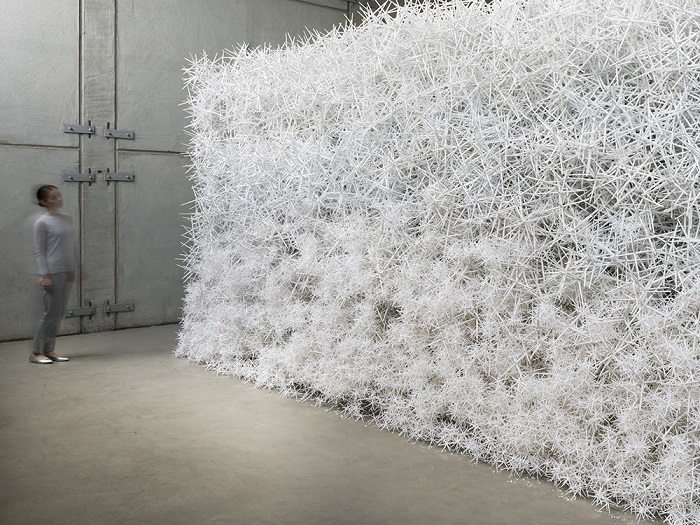
The ICD Aggregate Pavilion 2018 explores the construction of spatial enclosures made from designed granular materials. Granular materials are material systems which consist of large numbers of granules or particles. These particles are not bound to each other: they interact only through contact forces. In nature examples are sand, gravel or snow. In a designed granular material the particles are artificially made and consequently their geometry and material can be defined by the designer. Designing the particle allows the calibration of the characteristics of the overall granular material.
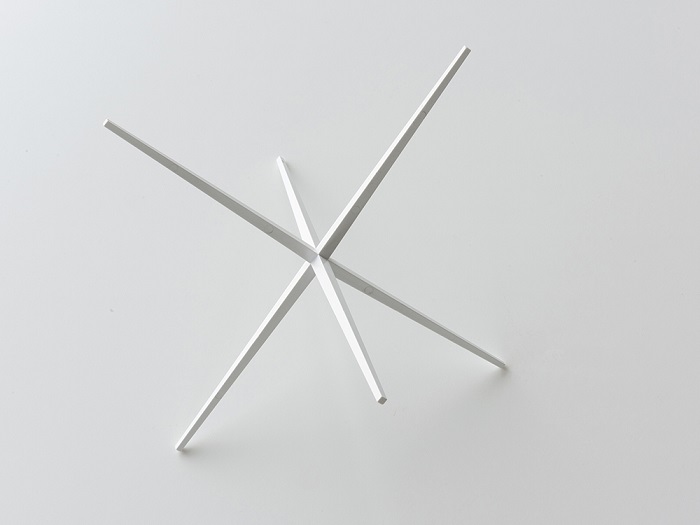
PROJECT INFORMATION
Address: 70469 Stuttgart, Germany
Installed: Summer 2018
Size: circa 105 cubic metres (Height: 3.00 metres, Width: 5.00 metres, Length: 7.00 metres)
Weight: circa 2500 kilograms
Number of particles: circa 120 000 non-convex particles (circa 70 000 hexapods and circa 50 000 dekapods) and circa 725 convex particles (spheres)
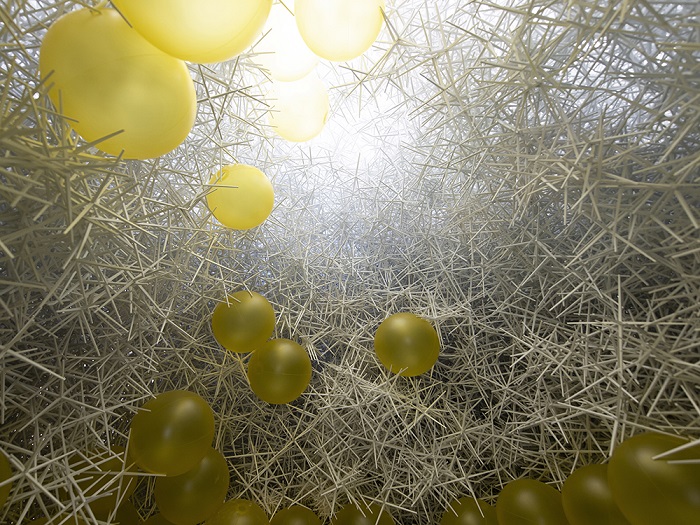
ICD Institute for Computational Design and Construction
Karola Dierichs, Achim Menges
Research Assistants
Christian Arias, Bahar Al Bahar, Elaine Bonavia, Federico Forestiero, Pedro Giachini, Shir Katz, Alexandre Mballa-Ekobena, Leyla Yunis, Jacob Zindroski
Cable Robotics
Ondrej Kyjanek, Martin Loucka
Manufacturing
Wilhelm Weber GmbH & Co. KG
Funding
GETTYLAB
ITASCA Consulting Inc.
Images courtesy of ICD University of Stuttgart 2018
Discover: icd.uni-stuttgart.de
